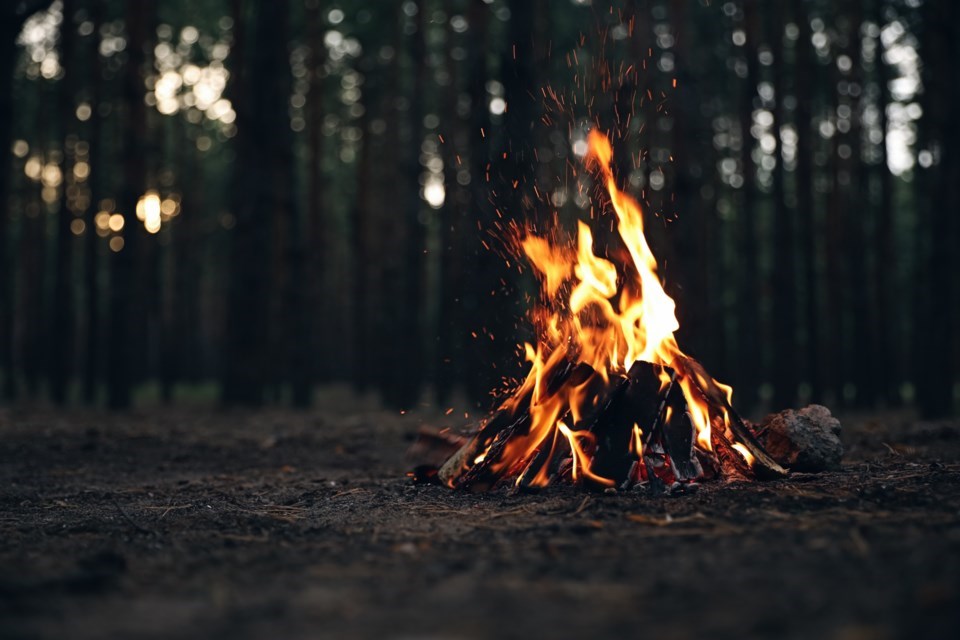As far as summers in Whistler go, 2025 has been almost perfect so far (well, except for some intermittent closures of Alta Lake beaches due to elevated coliforms from goose poop—but you can’t win ‘em all).
It’s been perfect in the sense that it hasn’t been one long, sustained heat spell plagued with drought, wildfire risk and smoky skies—which is far more than many Canadian communities can say at this point of summer 2025.
We’ve had a few good stretches of intensely hot weather, often interspersed with just enough rain and cooler temperatures to keep the wildfire risk at bay.
But Whistler is not out of the proverbial wildfire woods just yet, and with thousands set to descend on the resort for the biggest party of the summer in Crankworx, it’s worth reiterating the message: All it will take is one careless individual for things to go south fast.
While it has since dropped back to low, the fire danger rating in the resort sat at extreme for more than a week this month.* And the sunny skies and high temperatures are forecast to return on Saturday, right around the time the Crankworx action kicks off in earnest.
If you’re new to the resort, or just visiting for the party, here’s the key takeaway: No fires of any kind are allowed in Whistler now until Sept. 15, no matter the fire danger rating—including campfires and fireworks.
Anyone in contravention of that faces a hefty financial penalty. In Whistler, the fine for having a fire without a permit is $500, reduced to $300 if paid within 14 days. The fine for having a campfire during a ban, as Whistler is now under until Sept. 15, is $1,000. The RCMP and COS can also issue an additional $1,150 ticket for fire-related infractions.
Outside municipal boundaries, a Category 1 open fire prohibition is in place throughout the Coastal Fire Centre, banning campfires and backyard burns. The order will remain until Oct. 31, or until rescinded by officials. Anyone in contravention of a BC Wildfire Service prohibition can be ticketed $1,150, or a penalty up to $100,000, and sentenced to up to one year in prison. If your fire results in a wildfire, you can also be ordered to pay the government’s cost to suppress the fire and other damages.
Inside municipal boundaries, the Whistler Fire Rescue Service can hand out fines, but typically defers to the municipal bylaw department. Since Jan. 1, 2024, two tickets have been issued for open-air burns in Whistler.
That’s not a lot, but make no mistake—local officials take the threat seriously.
According to a Resort Municipality of Whistler communications official, there were 35 calls reporting outdoor burning in 2024, though not all of them led to direct enforcement.
“Often, we receive complaints over illegal fires that, upon investigation, turn out to be something else, like someone using a propane appliance, which is permitted. In some cases, crews arrive onsite to find an abandoned fire, with nobody around to fine. In other instances, fires are called in from areas outside of our jurisdiction,” the official said in an email to Pique. “It’s also not unusual for open burns to be called in when there is no fire ban in place (although a permit is still required). Seventeen of the fires reported last year fall into this category. Many of these 17 were abandoned campfires, some related to propane appliances, and a few with people on scene that were unaware of the permit requirement. We often rely on education in these instances rather than issuing fines.”
But at the end of the day, “blatant disregard of the bylaw and/or fire ban is strictly enforced,” they added.
While Whistler has enjoyed clear skies and low fire risk for much of summer 2025, other provinces and towns haven’t been so fortunate.
According to the federal government, there have been 3,582 wildfires so far in Canada this year, which is below the 10-year average of 3,931—but those fires have burned an astounding 6,260,975 hectares, blowing the 10-year average of 2,704,359 hectares out of the water.
Many prairie communities in Saskatchewan and Manitoba have endured a summer blanketed in thick smoke. Hundreds of structures have been lost, and more than 40,000 Canadians have been evacuated from their homes due to wildfire threat.
Relative to that, Whistler’s summer has been one for the ages—but it’s not over yet.
Find more info and resources at whistler.ca/wildfire. See smoke? In Whistler, report it by calling 911. Outside municipal boundaries, call 1-800-663-5555 or *5555 on a cell phone.
*This sentence has been updated from the original print version to reflect the current fire danger rating.




